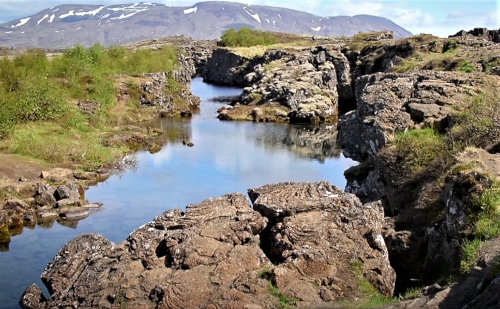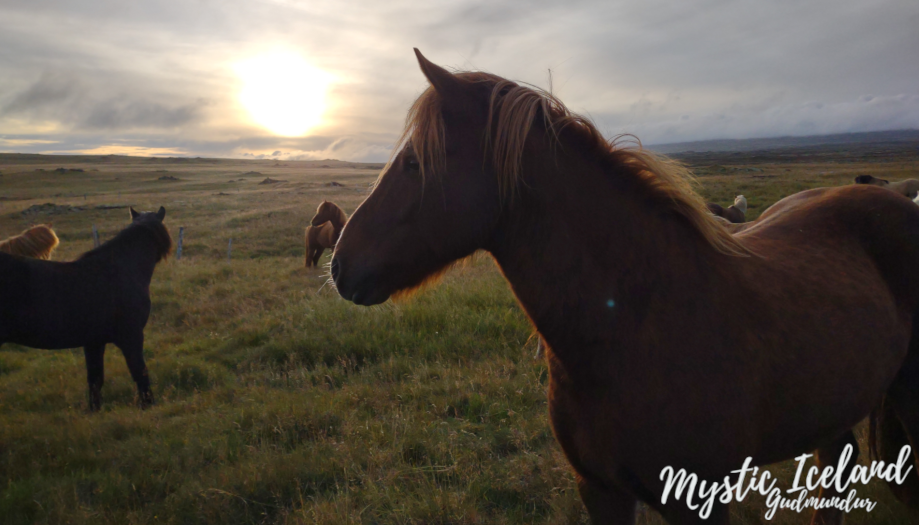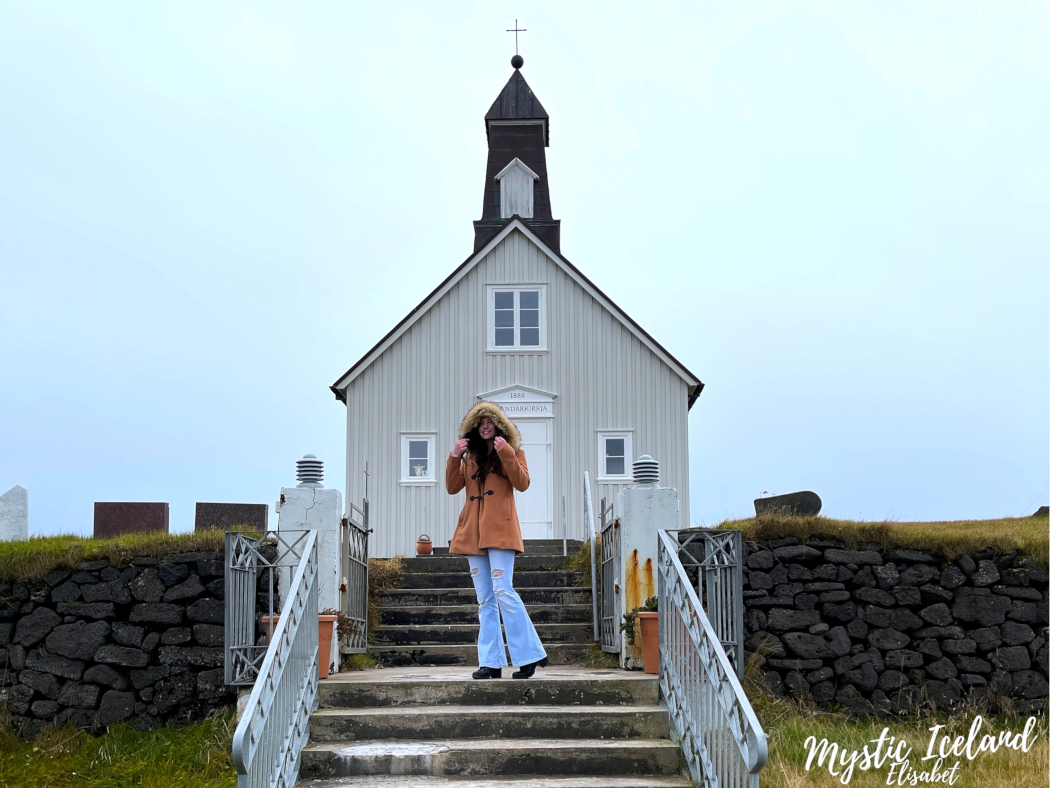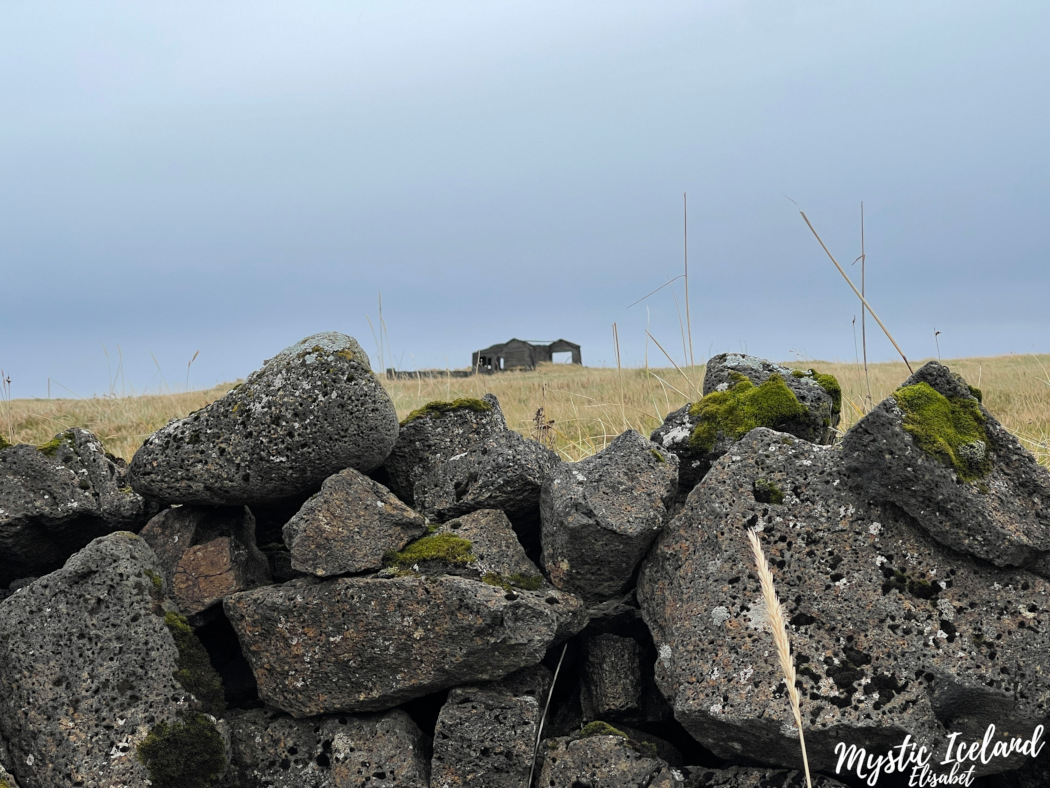The Norse travellers anchored their ships on the shores of Iceland. Little did they know, as they unloaded their pagan idols it was the beginning of a nation of sorcery and witchcraft. A thousand years later, the Norwegian king’s messengers arrived with the intention of converting the heathen people to Christendom.
Despite their efforts, the heathen population refused to convert so the king changed his tactics. What was to be the fate of the unbelievers? Would the heathen people really be lost for good? Or were they actually performing magic in secret?
Children become targets

Desperate to rid Iceland of its heathen population, the frustrated Norwegian king Ólafur Tryggvason did not give up. It was time to threaten the unwilling heathen people and what better tool than fear! Life had taught him a thing or two about instilling fear so he knew exactly how to provoke the Icelandic population. This entailed putting pressure where it really hurt.
And so, the king sent his men to kidnap four sons belonging to the Icelandic chieftains. There was no saving them now, the heathen population would be lost for good.

Stave Church
The Norwegian king sent Hjalti and Gissur to Iceland to serve as missionaries. Before they left he gifted them with wood which they were to build a church on the first place they land in Iceland. It so happened that their first stop was Vestmannaeyjar (Westman Islands).
The fate of unbelievers

All of Iceland’s leaders gathered together at the Alþing to discuss the life altering matter. This wasn’t just another meeting at the Alþing. Not only was it marking the new millennium but also changing the Icelandic culture as well. The year was 1000 AD and was about to wipe the slate clean and begin the new era with Christianization of Iceland. Finally, heathen population would be lost and Christianity would take its place. The king was sure of it.
Iceland divided

As the people listened to the king’s proposal the assembly quickly split into two groups representing opposing views. The pagan supporters refused to have a belief system forced on them while the other group was more open to Christianity.
The debate quickly turned into a screaming match between the groups. Not a single voice or opinion could be heard in the increasingly raging crowd. Were the heathen people about to be lost or did they stand a chance to survive into the new millenium?
Human character and politics

The chieftains Síðu-Hallur Þorsteinsson (representing the Christians) and Þorgeir Ljósvetningagoði (representing the Pagans) were on opposing sides. Fortunately, they were both reasonable men and discussed the matter among themselves.
Therefore, it didn’t take them long to realize that this two party system that was developing in front of their eyes, was only making matters worse. In order to calm the storm, Hallur resigned and handed the power over to Þorgeir. Hallur knew what kind of man Þorgeir was and trusted he’d do the most reasonable thing.

The decision of what to do next weighed heavy on Þorgeir. In order to clear his mind and focus on what was to be the biggest decision of his career he search for a quiet place. As he looked around the shouting matches in front of him, he realized his private booth was the only place to hide. He hurried inside his booth and crawled under a fur blanket for deep thinking.
The gods must be angry
While Þorgeir lay under his fur blanket a man came running and screaming towards the angry crowd. A nearby volcano was erupting near Ölfus. We now know this eruption was at Svínahraun. The lava was about to hit the farmstead of Þóroddur the Lawmaker (goði). It just so happened that Þóroddur was about to convert to the new Christian faith right before he heard the news. This was most definitely a sign that the gods were angry with his decision.

A voice in the midst of the heathen crowd shouted, "It's no wonder that the gods are angry about such words.". After hearing such novice words the Lawmaker (goði) Snorri Þorgrímasson, who was standing on the 9000 year old Þingvallahraun (Þingvellir Lava) replied: "Who angered the gods when the lava flowed that we now stand upon?". With this question, Snorri began a more scientific speech about recognizing the lava they stood on and how the act of nature was the cause rather than any god.
The new law

The day after, Þorgeir finally came out of his booth to speak to the assembly on Lögberg at the Alþing. He started out by telling the crowd that this two-way split would tear the nation apart. He then made the people promise to agree with whatever law he was about to present to them. The crowd quieted down and in their hearts they knew something needed to change. In unison they promised to adhere to whatever law Þorgeir had in mind. It was under those circumstances that Þorgeir declared his new law.

Þorgeir felt it was the only way to achieve a national peace. A compromise between the two parties was a vital part of his decision. The official religion was now the Christian faith. As a true sign of acceptance, those who weren't already baptized should do so right away. Consequently, the traditions of the heathen people was about to be lost for good.

As a token of appreciation for cooperating, pagan rituals and traditions could continue in private. However, if their practice became public knowledge, they would have to face the courts. The sentence for such practices was three years in exile. Thus, many feared the ancient traditions of the heathen population would really be lost forever.
Power and fear
Ljósavatn. To the south of Ljósavatn is the waterfall Goðafoss
Finally, for the first time the Norwegian king had a direct influence on Iceland as a nation. Many agreed to the Christianization out of fear that King Ólafur would invade and take over the land. It’s safe to say that many Icelanders did not take their baptism, or this new religion, seriously and saw it more as a political move.

After that fateful day, the waterfall became known as Goðafoss (waterfall of the lawmaker/gods). Not everyone believes this is how the waterfall got its name. This is because the story appeared to be just another folklore. Instead, the actual story was more likely that it was named after its surroundings (i.e Goðdalir).
The king died in September that year and was probably quite happy with this accomplishment.
Persecution
And so the Age of Peace and the building of churches across Iceland began. However, the church saw the devil in pagan rituals and during the Reformation Age the church brought their Witch Craze to Iceland. For over 600 years the church left the heathen people in peace, but the idea of the island’s original belief being satanic took hold.
In order to get everyone onboard, the age-old tactics of fearmongering and misrepresentation was planted in the hearts of the people. And so, the seeds of abominable deeds by the heathen people was planted. As a result, their neighbors, the church and the authorities hunted them down. During the 17th century the Icelandic population rose to about 50,000 inhabitants with an increasing membership in the Christian faith.

In the years between 1625 and 1683 about 170 Icelanders were accused of witchcraft. About 130 recorded court cases survived which include the cases of 21 Icelanders burned at the stake. Surprisingly, these were mostly men. To date, we only know of ten cases against women. However, only one woman was ever executed for witchcraft.










One thought on “Are The Heathen Really Lost And Actually Performing Magic In The Closet?”
Comments are closed.